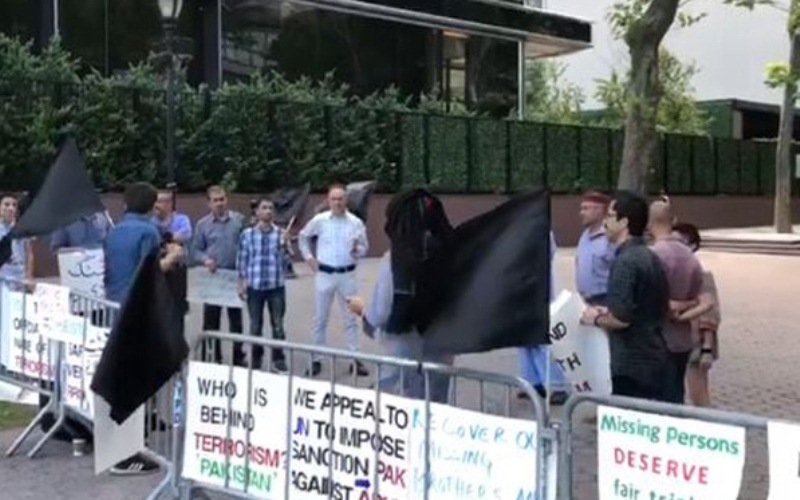Pakistan: Pakistan called a joint session of the Parliament to condemn officially the latest developments in India regarding Kashmir. For the occasion, every single member of the parliament was summoned: the Speaker even issued production orders for former president Asif Ali Zardari, ex-prime minister Shahid Khaqan Abbasi, and Pakistan Muslim League-Nawaz (PML-N) leader Khawaja Saad Rafique, all of them currently detained on charges of corruption and money laundering. But, strangely enough, the Speaker did not issue any production order for two members of the same Parliament in jail for almost three months: Mohsin Dawar and Ali Wazir.
Dawar and Wazir were arrested on fake charges at the end of May.
According to the official version, contradicted by many pieces of visual evidence, “Dawar and Wazir instigated the protesters to attack the check post in Boyya, North Waziristan”. The protesters were Pashtun Tahafuz Movement (PTM) members chanting slogans against the government.
According to eyewitnesses and local journalists, the Army tried to prevent Wazir and Dawar from reaching the area where they were supposed to give their speeches. Supporters started to remove the barriers and the Army opened fire on the demonstrants. No PTM supporter was carrying guns, as shown in many videos that surfaced after the incident. Thirteen people died and for many days, curfew had been imposed all over the area. After the first batch of wounded were shifted to the nearest hospitals, it was not possible to take other people to medical facilities. Since then, Dawar and Wazir have been kept in jail although they are elected members of the Parliament.
Unlike other detained politicians, Dawar and Wazir have been denied the right to vote in the Parliament sessions, even important ones. Tariq Afghan, Dawar and Wazir’s lawyer, said “It’s a discrimination against Pashtun MNAs and the Government is scared of the truth”, the truth of a land where the locals are suffering in silence since many many years. Where they have seen markets and villages completely destroyed by the Pakistani Army ‘in search of terrorists’. A land they’ve been forced to flee many times while they were undergoing a systematic ethnic record and were discriminated accordingly; a land where at a point political opponents, ordinary people, activists and intellectuals began to disappear or to be killed in fake encounters.
According to PTM, Pakistan has been using tribal areas to hide their ‘good jihadis’ and made the locals live in a climate of pure terror. And, while the so-called ‘peace talks’ with Taliban progress, they are again all over the place, issuing orders to the local population to forbid music, polio vaccinations and women from going out by themselves. Indeed, allowing Dawar and Wazir to speak or only to join the Parliament session, would have been risky. They could have exposed the situation of their land, of their constituency. And maybe highlighted also that, according to local NGOs, in the month of July, thirty bodies have been recovered in Balochistan and the Army carried out eighty military operations. Eighty, against Pakistani citizens, including women and children.
Maybe, but just maybe, in front of Mohsin and Ali the Parliament would have felt a bit embarrassed to condemn the house arrest of Kashmiri politicians. Maybe, but just maybe, when Imran Khan appealed to the world to protect Kashmiris saying: “If the world does not act now, if the so-called developed world does not uphold its own laws, then things will go to a place…that will damage the whole world.” they could have mistaken him and thought he was finally, at the end, talking of Balochistan and Waziristan.
When the Parliament was discussing the situation in Kashmir and the detention of Yasin Malik, they could maybe, but just maybe, point out that in Pakistan Administered Kashmir Yasin Malik’s party is banned from elections and party workers charged with treason. Charity starts at home or, to say with the words of New Testament: “We must not look at the speck in our brother’s eye when we miss the plank in our own” (Matthew, 7-3)
Disclaimer: The views expressed in this column are strictly those of the author.

